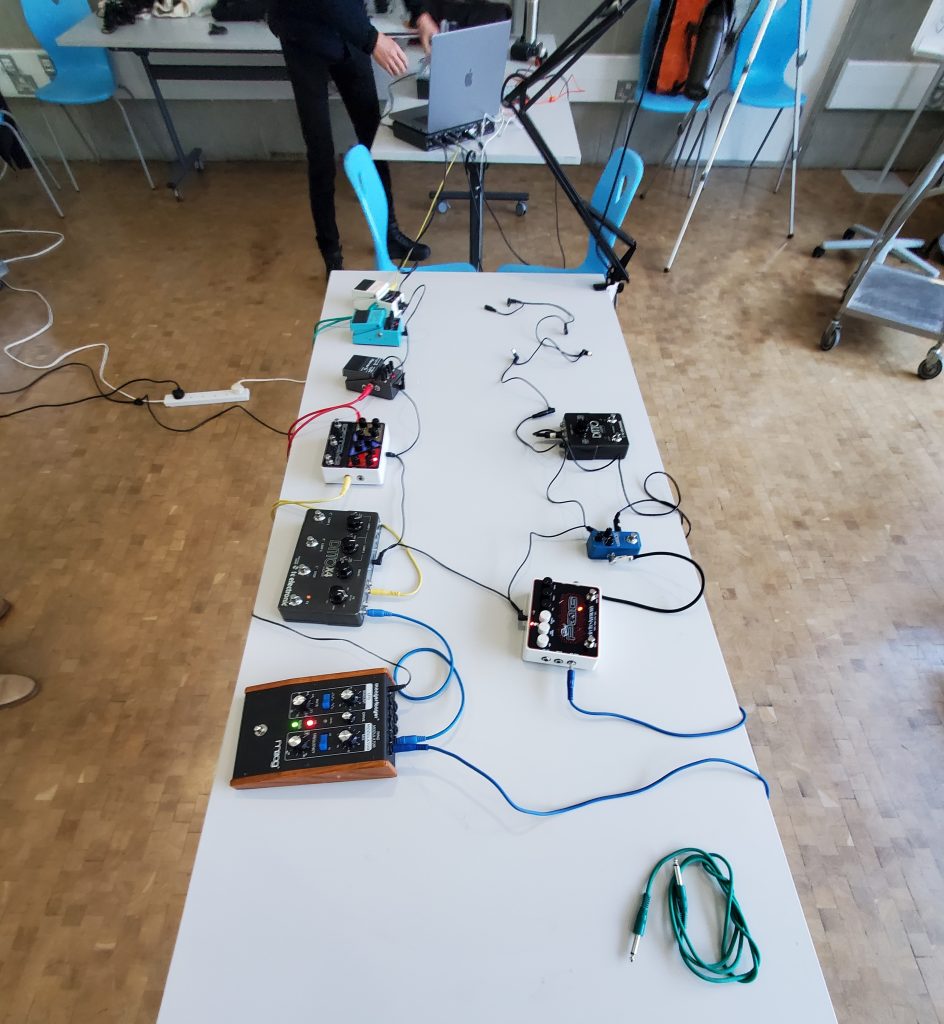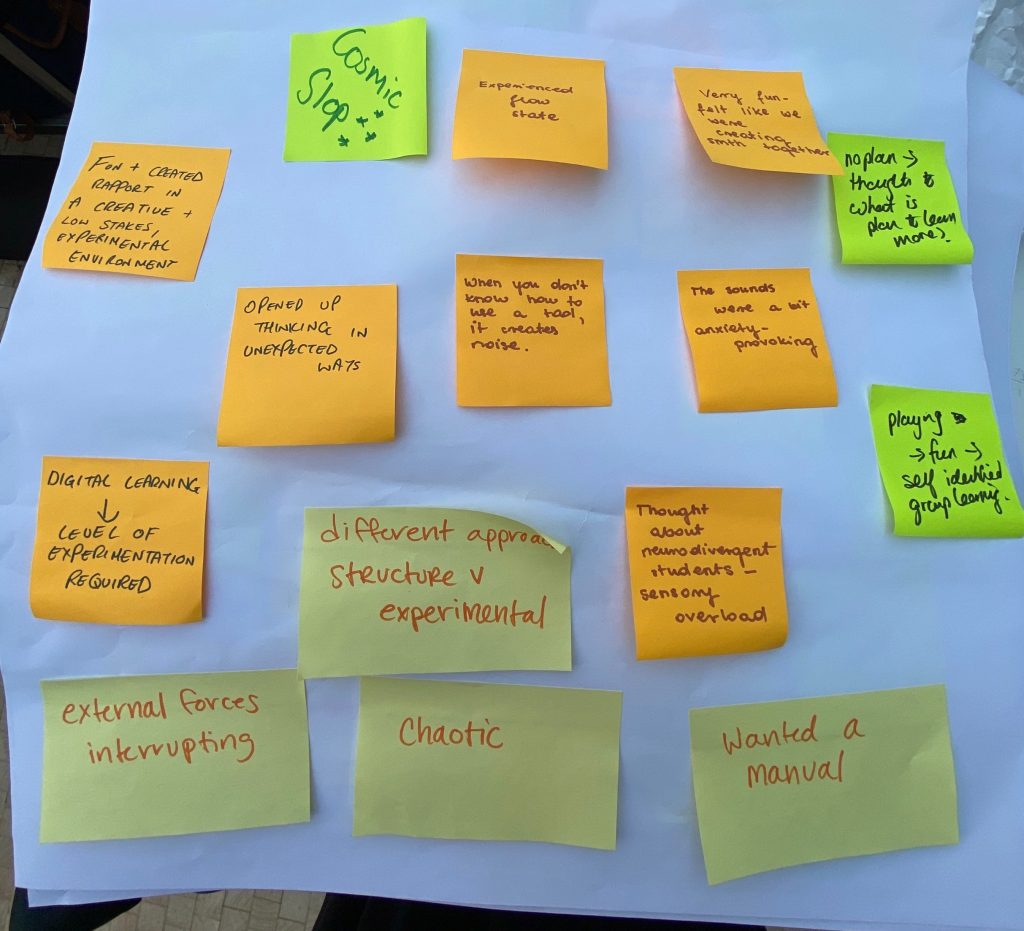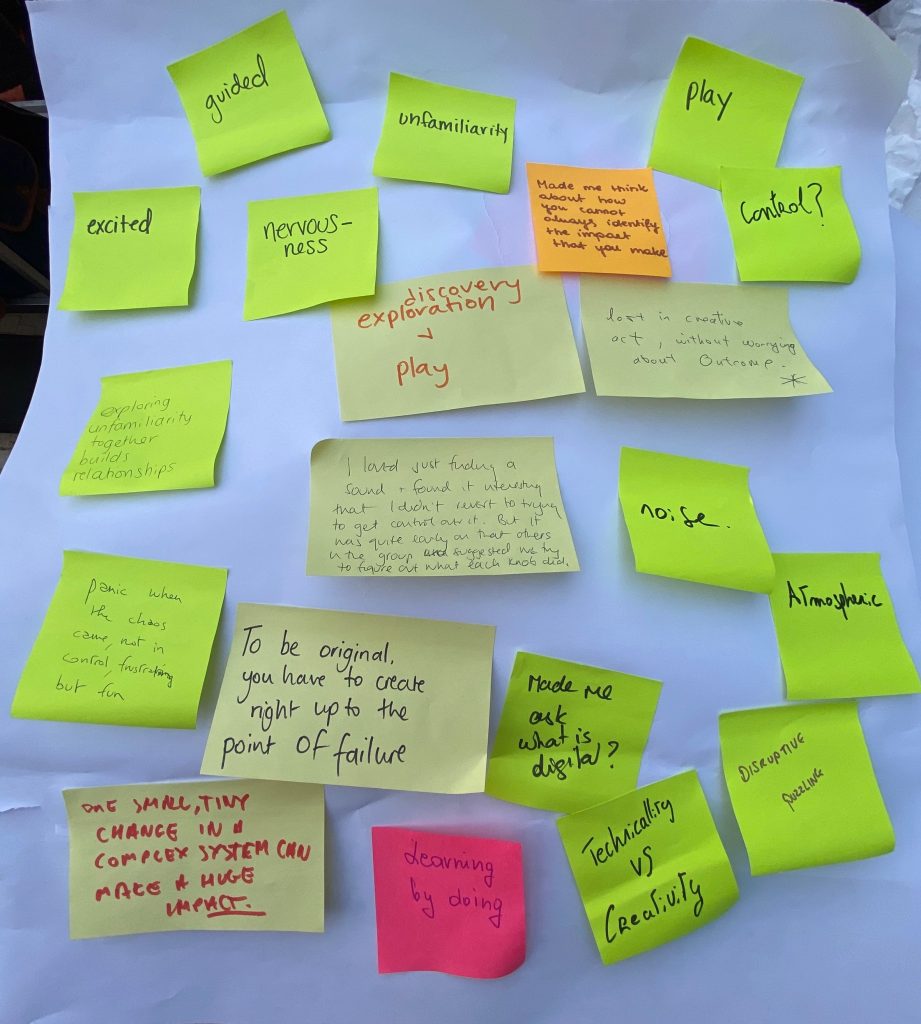Each term, we host meet-ups for UAL’s Digital Learning teams and other colleagues whose roles focus on digital learning and teaching. At our spring 2023 meet-up, we invited guests from Council for Higher Education in Arts and Design (CHEAD) to tell us more about the networks they support and work they do. Richard Parry (UAL Short Courses) gave a presentation on Digital Learning and Short Courses followed by Ruth Powell (Digital Education) discussing Digital Course Organisation.
Graham Barton (UAL-wide Academic Support) and Graeme Spurr (LCF Academic Support) facilitated a workshop where we used sonic objects to collaboratively make songs in small groups. This led to a reflective process where we examined how our collective and individual work relates to the methods and process experienced in the workshop.
The purpose.
The workshop was adapted from a series of workshops developed by Graham Barton and David Bracegirdle (formerly of CSM Learning Zone) for students through 2017-19. These aimed to give people a collaborative, experimental experience, in order to surface habituated responses to new learning environments and to act as a set of analogies to their own practice.
When planning this workshop, we wanted to encourage cross-team collaboration, experimentation and group and individual reflection. Graeme wrote that we wanted to ask and explore a further question: ‘how do groups/teams work with generative audio technology when they may lack contextual and/or technical knowledge and have differing levels of acoustic/sonic literacy?’
The method.
Each group made one song without instruction, observed the other groups and reflected on the process. After each group finished their first song, Graham and Graeme provided instruction on how to use the tools and how they worked together. We reflected together and put some of our notes on post-its to compare our thoughts. Then, each group made a second song.

The first song.
The first song was an exploratory and at times nerve-wracking experience for some. We produced these 4 songs without any instruction though some group members may have had some knowledge on how a certain tool worked.
Warning: During these first sessions, some of sound changed dramatically when the tools were turned on and off. Some songs may have distortion or loud parts, so you may want to lower your volume.
Group 1:
Group 2
Group 3
Group 4
The instructions.
After each group finished their first song, we took some time for intentional silence.
Graham and Graeme provided instruction on how to use the tools and how they worked together. We reflected together and put some of our notes on post-its to compare our thoughts.
The second song.
After learning more about the sonic objects, each group made a second song. Graeme reflected that ‘just through observation and repetition, groups quickly honed and refined their sonic objects and processes with explorations of timbre, melody and voice.’
Warning: Some songs may have distortion or loud parts, so you may want to lower your volume.
Group 1
Group 2
Group 3
Group 4
The reflections.
‘The process and structure of the session provided a reflective, analogous space,’ wrote Graham. This allowed participants to reflect through a collaborative activity using post-its to mark down thoughts and connect them to others in group discussions.
Afterwards, we received feedback from a few attendees. Romain reflected, ‘It was great! Creative and sparked some discussions and analogies with our own digital learning practices and processes.’
Ruth was surprised at ‘how much we were able to reflect on our experiences within the workshop to areas of our work.’
The post-its.
Some of the notes read:
- Fun and created a rapport in a creative, low stakes, experimental environment
- Cosmic slap
- Opened up thinking in unexpected ways
- When you don’t know how to use a tool, it creates noise
- The sounds were a bit anxiety-provoking
- Digital learning > level of experimentation required
- Thought about neurodivergent students – sensory overload
- Made me think about how you cannot identify the impact you make
- To be original, you have to create until the point of failure
- One small tiny change in a complex system can make a huge impact
- Lost in creative art without worrying about outcome


Do you want to learn more?
If you have any questions about the Digital Learning meet-ups, or would like to attend one, please contact Hannah Hyde or Chris Rowell.
